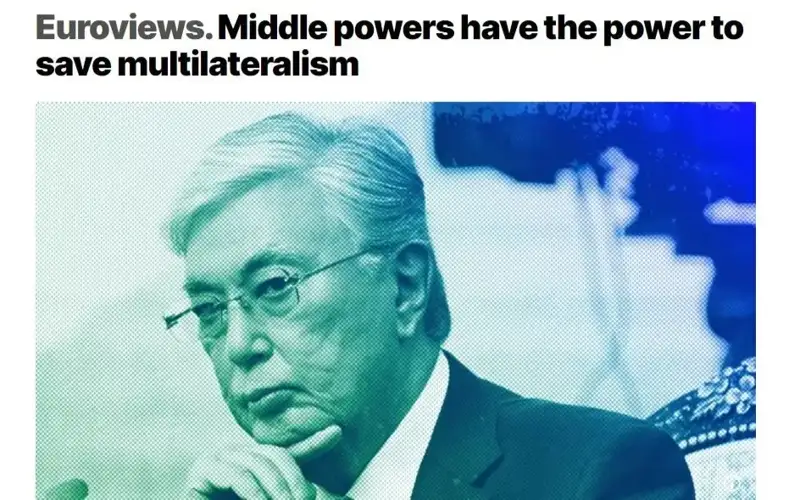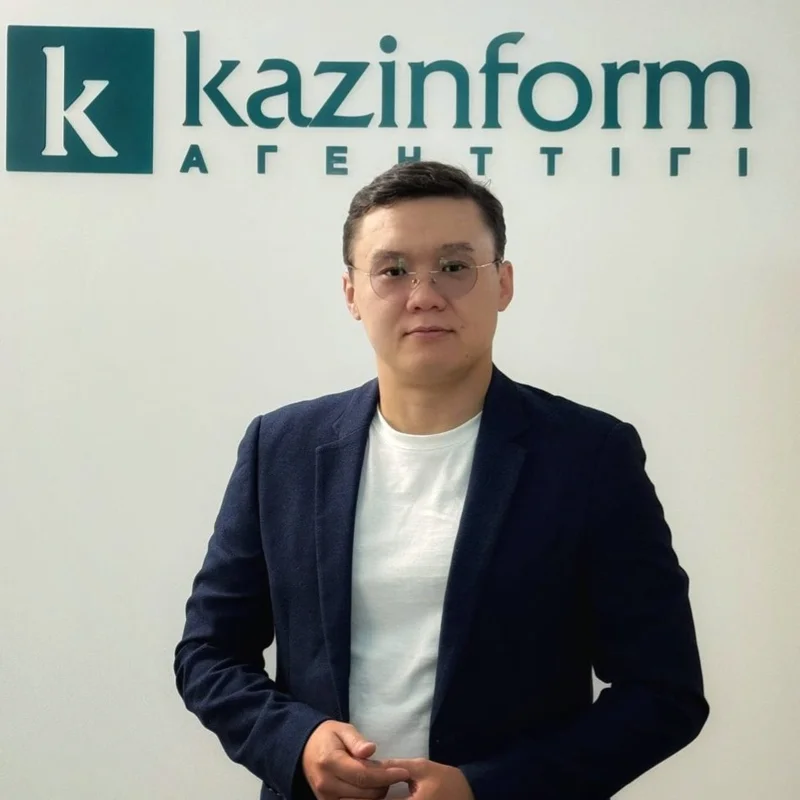Middle powers hold the key to preserving multilateralism – President Tokayev’s article for Euronews
In a recent article for Euronews, Kazakhstan's President Kassym-Jomart Tokayev expressed his views on Kazakhstan's role in the world, emphasizing the nation's dedication to multilateralism and its pursuit of new platforms for global dialogue and cooperative efforts, Kazinform New Agency correspondent reports.

According to the President, today's world is marked by extraordinary geopolitical turbulence and persistent conflict, and the need for multilateral solutions has never been more urgent.
Wars in Europe, the Middle East, and Africa are claiming the lives of hundreds of thousands, whilst climate change is leaving millions hungrier, vulnerable, and displaced. These conflicts appear beyond resolution, with no hope in sight, says Tokayev.
Amidst this global discord, the traditional powerhouses - the world’s economic and political behemoths - are increasingly unable to work together.
The conflict in Ukraine has led to a diplomatic deadlock, the ongoing crisis in Gaza represents a severe humanitarian catastrophe, and rising tensions in the Indo-Pacific are promoting risky confrontations rather than constructive interactions. At the same time, institutions intended to build global consensus, like the United Nations, are experiencing stagnation and impasse.
The President emphasizes that in this current situation middle powers like Kazakhstan are becoming crucial, agile players on the global stage.
“The veto power held by permanent members of the United Nations Security Council often results in deadlock, preventing decisive actions against global crises and leading to repeat scenarios where unilateralism is favored over collective action. This weakens multilateralism and the credibility of international institutions,” explains Tokayev.
Despite not having the same global influence as superpowers, countries like Kazakhstan have the economic and military resources, as well as the political will and diplomatic skill, to significantly impact issues such as food and energy security, green transitions, and the sustainability of supply chains.
“Unburdened by the complexities of superpower politics, our agility enables us to navigate intricate diplomatic terrains and carve paths toward compromise and reconciliation,” explains Tokayev.
Middle powers are dedicated to supporting the multilateral system
Unlike superpowers, which may see these institutions as constraints, middle powers depend on them to resolve disputes, protect their territorial integrity, and tackle collective challenges like climate change and pandemics.
Kazakhstan has always been deeply committed to multilateralism, continuously seeking new forums for international dialogue and collaborative action. Country’s efforts extend beyond nuclear disarmament to initiating a new multilateral agency for biological security to guard against global threats like pandemics and biological terrorism, says Tokayev.
He adds that Kazakhstan and France are co-chairing the inaugural One Water Summit this year, addressing global water scarcity and desertification. Also proposals for hosting a UN Regional Centre for Sustainable Development Goals in Central Asia and Afghanistan were introduced, to lead regional climate change initiatives.
Additionally, Kazakhstan is actively involved in resolving long-standing conflicts that were demonstrated by the recent role in hosting peace talks between Azerbaijan and Armenia, emphasizing the influential role of middle powers in promoting peace.
“That the path to global unity is not uncharted - it has been successfully navigated before. The world has overcome divisions in the past and can do so again through diplomacy and dialogue,” reminds Kassym-Jomart Tokayev.
Revitalization of the multilateral system
In conclusion, the President of Kazakhstan emphasizes the urgent need for global cooperation to revitalize the multilateral system, which is currently under significant stress. He argues that while major powers are reluctant and smaller countries lack influence, middle-sized nations like Kazakhstan should take a leadership role. The call to action is for these countries to not only participate but actively manage global affairs, urging all international partners to bolster multilateralism.
“Let our collective actions reflect our commitment not just to a more peaceful present but to a prosperous and harmonious future. The task is formidable, but with determination, leadership, and a steadfast commitment to dialogue, we can transform today's challenges into tomorrow's successes. Let us lead the way to an era of multilateral renewal,” Tokayev concludes.
